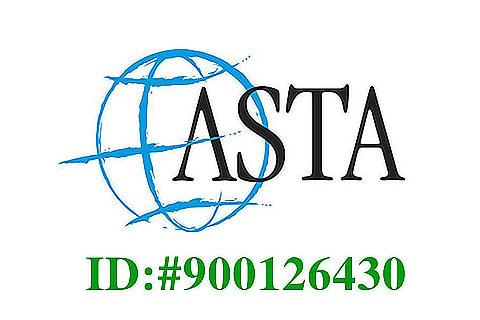Spring Festival
The Spring Festival is known in the West as Chinese New Year, in China itself the New Year's Eve is called "Chu-xi". It is the oldest traditional festival for Chinese people, and great occasions for family reunion, just like the Christmas in the West. It always comes in the 1st day of the lunar month, later than the Gregorian calendar.
Origins and LegendSpring Festival originated from Shang Dynasty, was evolved from the Winter Sacrifice in primitive society. Ancient Chinese people held this activity at the end of winter, and thanked all the gods for the blessing, welcomed the New Year, worshipped ancestor, danced and sang when getting together. This custom left with content and form has also been changed.
The most famous legend about Spring Festival is related to ancient beast known as "Nian". It was ferocious, with bull-like head body and lion-shaped head. Living at the far away mountain areas, it ate other beasts for food but at winter came to hunt and disturb villages. Villagers were frightened and all escaped to other places. An old lady found the methods to drive the beast; she painted the door in red burned fire at front of the house. When Nian came again, the lady fired the firecrackers which made cracking noise to scare the beast. This practice was kept through the years and the Nian never came to village again. The custom to paint red at the door and set off the firecrackers became a tradition and "Nian" now has another meaning as Spring Festival. The celebration of Chinese New Year is also called "Guo Nian", which may originally mean "passed or survived the Nian" .
Chinese New Year Celebrations
It is celebrated from the "Chuxi New Year's Eve" and by having different and interesting activities. Preparations like cleaning the house thoroughly and purchasing necessities not only the wheat flour, chicken, duck, fish and meat but also various decorations, new clothes and shoes for the children as well as gifts for the elderly, friends and relatives.
Spring Festival is celebrated for 15 days to bless good wishes and healthy year for relatives and friends. These celebrations are slightly different according to regions, but always include New Year's Feast, Setting off Fireworks, Giving Lucky Money, Pay a New Year Visit, Pasting Spring Couplets, Character "Fu" or god of wealth on the door, going to Temple fair.
Pasting Spring Couplets, Character "Fu" or Gods of Door or Wealth - Spring Couplets is pasted on each side of the door, featuring at Chinese calligraphy with black characters on red paper. All are inclusive of the house owner's wishes for good fortune, and luck for the coming year. Character "Fu" or others like pictures of god were pasted at the center of the door. "Fu" with the meaning of blessing and happiness, always pasted in up-side down way, is homophonic with "fu comes", both being pronounced as "fudaole." Pictures of the god of doors and wealth will be posted on front doors to ward off evil spirits and welcome peace and abundance.
New Year Eve's Feast - All the family members get together at parents' house to have dinner. They chat and talk about the happy things in the past, looking forward to a lucky new year. The meal is more luxurious than usual, with dishes such as chicken, fish and bean curd cannot be excluded as in China, they mean auspiciousness (blessing), abundance and richness respectively. In Southern China, people eat Nian-gao (kind of cakes made of sticky rice flour), means "higher and higher, one year after another". While in Northern China, people eat Jiaozi or dumplings shaped like a crescent moon. After the dinner, the whole family will sit together, chatting and watching the Spring Festival party on TV, which is an essential entertainment at New Year's Eve for the Chinese both at home and abroad.
Setting off Fireworks - On the New Year's Eve, to welcome the New Year, Chinese people sit together and watching TV until the midnight comes. Right as the clock strikes 12 o'clock midnight, the people light firecrackers everywhere in China. It is the most important tradition and people think that its spluttering sound and light help to drive evil spirits away. But this activity was banned or partially forbidden in some cities due to safety and pollution concerns.
Giving Lucky Money - It is also one of the most welcomed activities by children besides the lighting of fireworks. The young members of a family greet the older and saying "Gong Xi Fa Cai", and "Xin Nian Kuai Le" (mean "Congratulations and be prosperous (financially)", and "Happy New Year") and are given lucky money in red envelope - "ya-sui-qian". Only paper money included as coins mean bad lack at this occasion. The lucky money will be given from other relatives or other married adults along the whole holiday. In Hong Kong, it is also called: "Hung Bao" or "Lei Shi"
Paying New Year's Visit - Visits between relatives and friends would last for several days. People all wear new clothes, with some present, greet each other with "Gong Xi" and wish a lucky and happy New Year.
Going to Temple Fair - Originated along with the development of Buddhist and Taoist activities the fairs are held at various ancient temples, which are a kind of mass gatherings that integrate religious worship, entertainment and commerce. Temple Fairs now feature all kinds of Chinese folk arts and crafts, where you can taste numerous kinds of local snacks, court food and other dishes, and enjoy dragon parade and lion dances, waist drum dancing and other entertainments.







